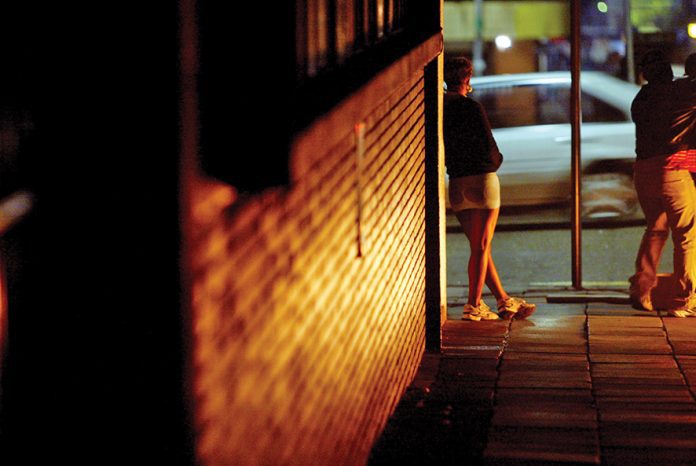Sex work is the world’s oldest profession. But even in this sector, members of the LGBTIQ+ community are often brutalised and discriminated against.
A queer sex worker, Kelebogile Tabane from North West, told Sunday World that she unexpectedly fell into the brutal sex work to help her mother soon after her father’s death.
She says her home situation got miserable as she realised her mother was struggling to feed them and she felt the need to go out and find anything that would help.
“Fortunately, or unfortunately, the community will judge, as they always do,” said Tabane.
“I met an old friend of mine and she was looking nice and clean. I jokingly asked her where she was working so she would help me find a job too and she told me to report for duty the following day.
“I was excited to meet her the next morning, but I was shocked when she gave me a condom as my clock-card and told me to start working. I remember it was so physically and emotionally painful the first day, but I did it over and over and now I am the big boss.”
Tabane says she offers sex to men and women, or anyone who relates to her sexuality – yet the opportunity to make more money than her colleagues has put her in greater danger than the others.
She has had to sometimes hide the truth about her sexual identity to avoid gender-based violence and double stigmatisation for the work she does and who she truly is.
Another sex worker offering her services in Hillbrow, which is notorious for its brothels and crime, says she gave herself over to sex work when she realised that youth unemployment was sky-rocketing.
She is a 23-year-old transgender woman and believes that rejection from her community and failure to get a job were reasons enough to jump right into “the lion’s den” – the name she gave the industry once she realised its brutality.
An emotional Noxolo Merwe* said she felt that South Africa was not yet where it needed to be when it comes to accepting LGBTIQ+ people, saying that if it were, she would not have been in situations that drove her to sex work.
“Understand me, I did not dream of being a sex worker, ever. But the situation forced me. The R350 [social relief grant] is nothing for survival, I need to hustle, and I am doing just that.”
Sisonke non-profit organisation has been active in protecting the rights of sex workers and opposing the criminalisation and other legal oppression of sex work to support its recognition as work – normally self-employment.
“It is a dehumanised industry and we need to humanise it. We have also included the LGBTIQ+ mass because they are facing too many pressures of the world already, and we support every sex worker from a legal age.
“We don’t judge the youth because we consider and understand sex work as proper work,” said Yonela Sinqu, Sisonke communications officer.
(*Not her real name)
Follow @SundayWorldZA on Twitter and @sundayworldza on Instagram, or like our Facebook Page, Sunday World, by clicking here for the latest breaking news in South Africa. To Subscribe to Sunday World, click here.



